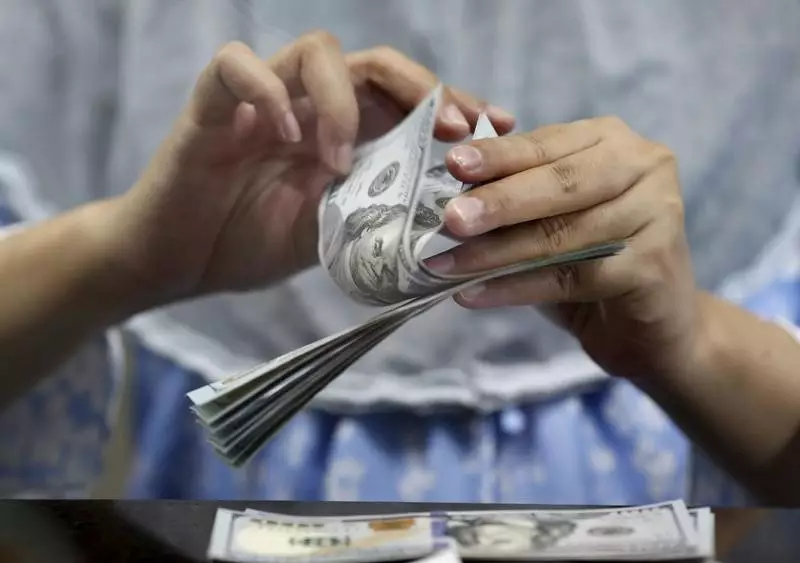In the weeks leading up to the U.S. presidential election, the dollar has experienced an unexpected resurgence, largely fueled by the evolving political climate surrounding Republican candidate Donald Trump. Observers have labeled this phenomenon the “Trump trade,” indicating that speculations regarding Trump’s potential victory have begun to reshape the financial landscape. This situation presents a curious case study: while the dollar is seemingly benefiting, experts caution against overly enthusiastic investments, suggesting that the current rally may not be sustainable.
Market Sentiment and Its Implications
As public opinion polls suggest a tightening race between Trump and his opponent, Vice President Kamala Harris, traders are revisiting their strategies. The dollar’s rally has been bolstered by an increased perception of Trump’s chances in the election, which historically correlates with a rise in the value of the greenback. As political anxieties mitigate, and with higher expectations for tax cuts and deregulation often associated with Republican leadership, the optimism manifests as a stronger dollar.
However, as UBS highlights, this current upturn should be approached with skepticism. The investment bank advocates for a strategy of selling into significant rallies, indicating that Trump’s presidency might not yield consistent long-term benefits for the dollar. This suggests that investors should remain cautious, balancing the possible short-term gains with a broader view of economic policies and their implications.
Analyzing the Future of the Dollar
While immediate sentiment appears bullish, it is crucial to assess the potential longevity of this movement. Experts at UBS project that the euro could rise toward 1.16 against the dollar by 2025, indicating limited appreciation for the U.S. currency in the near future. This bears significance for investors focused on the long-term dynamics of currency trading and suggests that the current dollar rally may ultimately prove to be a fleeting mirage rather than a sustainable trend.
Furthermore, Trump’s economic policies, while appealing to certain market segments, are multifaceted and could yield mixed results. Concerns about tariffs, trade wars, and domestic economic policies could pose risks. Thus, although the short-term reaction to a potential Trump victory may seem favorable, the overarching economic environment and policy directions may ultimately undermine the dollar’s strength.
While the dollar currently enjoys a bout of optimism linked to Trump’s political resurgence, investors should tread carefully. The distinction made by UBS serves as a reminder of the importance of critical analysis in financial decision-making, especially in politically charged environments. As the election approaches, the call to sell into dollar strength may resonate with those looking to navigate the complexities of currency trading amidst evolving political narratives. With a blend of skepticism and strategic planning, investors can better prepare themselves for the unpredictabilities that lie ahead.

